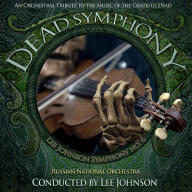The Russian National Orchestra was founded in 1990 during the period of perestroika or openness that preceded the fall of the Soviet Union. All other orchestras in the country since the advent of Communism had been state-owned. The orchestra's founder was pianist and conductor Mikhail Pletnev, who conducted the group in its early years. He offered players an atmosphere of artistic freedom and an actual financial stake in the orchestra, and top players began to flock to the group from state ensembles. The orchestra was successful from the beginning, and it attracted financial support from corporations and foundations both within and outside Russia. Violinist and conductor Vladimir Spivakov became the group's music director in 1999; Pletnev has remained active with the orchestra, and it has a large roster of guest conductors. The Russian National Orchestra often appears at its home base, the Zaryadye Concert Hall in Moscow, but it is notable for the depth and frequency of its international touring. The orchestra was the first Russian group to appear at the Vatican, and it toured Israel. The orchestra has made multiple tours of Europe, Asia, and the Americas, and it has appeared at the BBC Proms in London and other major festivals. It has been heard on broadcasts on both Russia's Kultura program and National Public Radio in the U.S. The Russian National Orchestra maintains two foundations, Cultural Allies sponsors exchanges between Russia and the U.S., while Magic of Music organizes concerts in Russian orphanages.
The Russian National Orchestra is especially notable for its recording career, which began just a year after the group's founding in 1991, with a critically acclaimed performance of Tchaikovsky's Symphony No. 6 in B minor, Op. 74 (Pathétique). The orchestra signed with the Deutsche Grammophon label in 1993 and remained there until 2009, issuing mostly, but not exclusively, Russian music; Pletnev led the orchestra in a complete cycle of Beethoven symphonies released in 2007. In the 2010s, the orchestra has recorded mostly for PentaTone Classics, issuing a half-dozen albums or more in several years. A 2003 recording of Prokofiev's Peter and the Wolf featured speaking parts from former U.S. president Bill Clinton and former Soviet prime minister Mikhail Gorbachev; the record earned a Grammy for Best Spoken Word Album for Children and spawned several remakes in other countries. As of 2020, when the orchestra released a recording of Shostakovich's Symphony No. 13 (Babi Yar) under conductor Kirill Karabits, the orchestra's recording catalog comprised well over 50 albums. ~ James Manheim, Rovi












